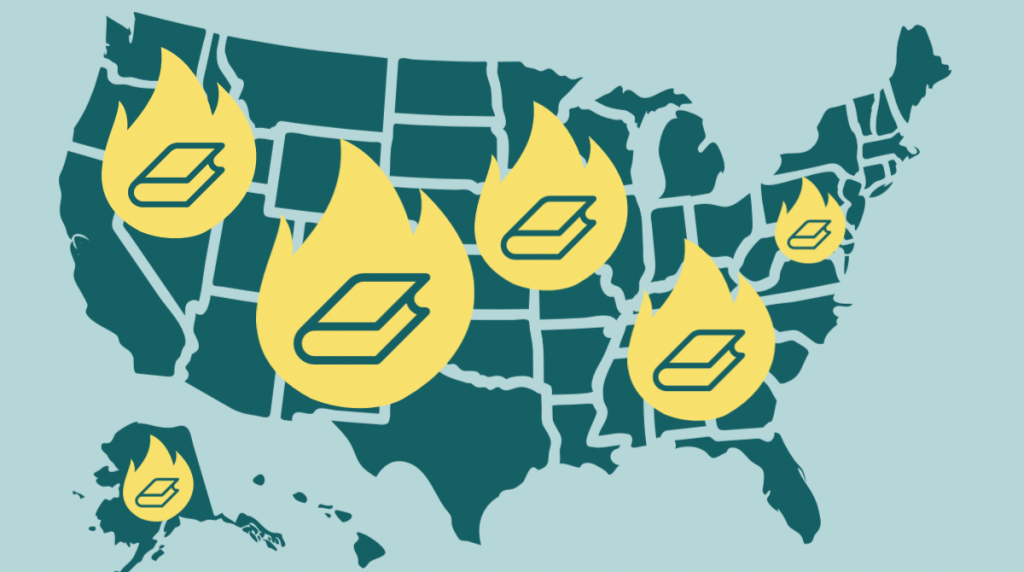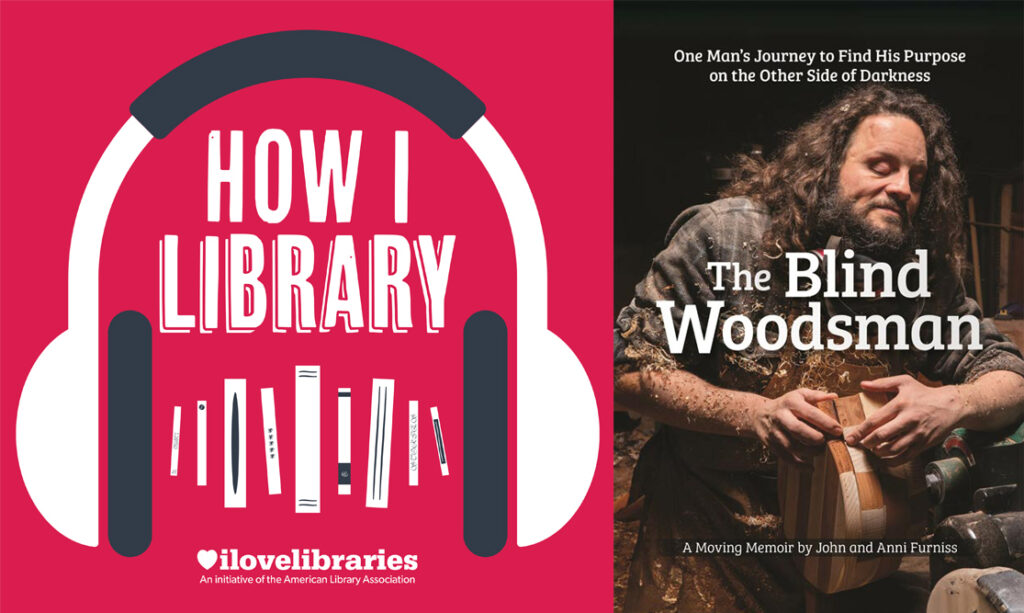Book challenges and bans are increasing in libraries and schools throughout the United States. To help spread the word about these activities and efforts to combat them by librarians, parents, students, politicians, and concerned citizens, I Love Libraries will frequently highlight several stories on the current crisis. This roundup includes news from Florida, Maryland, South Carolina, and an editorial from an award-winning librarian who’s experienced the effects of books bans firsthand.
Florida School District Quietly Banning or Removing Books from School Libraries
FlaglerLive has found that Flagler County (Fla.) school district has been quietly banning or removing books from library shelves in four local schools, despite the implementation of a policy intended to balance parents’ rights to prohibit their own children from accessing certain library books while preserving the right of full access for others. The policy was instituted last summer after a Flagler County school board member sought to ban four books from school libraries and filed a criminal complaint against the superintendent for allowing alleged obscenity to be on library shelves.
Book Banning Resonates as an Issue in Maryland School Board Races
School board candidates who intend to remove books dealing with gender identity, racism, and other socially sensitive topics from school library shelves are running in almost half of Maryland’s counties, reports The Maryland Reporter. The conservative candidates also oppose books dealing with critical race theory, claiming that the books “indoctrinate” readers.
These conservative school board candidates are in the minority, however. About 25% of the 102 candidates who responded to a Capital News Service survey said they favor banning some controversial books from school libraries, but about 41% opposed doing so.
Book Banning Attempt Defeated After Community Stands Up for LGBTQ People
LGBTQ Nation reports that Greenville County (S.C.) Council has voted to keep LGBTQ books accessible to children at the public library—repudiating an attempt by a city councilor to require the local library system to remove books “promoting sexuality” from all children’s sections.
Councilor Joe Dill’s resolution claimed it was seeking to “protect the innocence of children.” It would have required libraries to submit a report to the council detailing “how such books ever found their way into the Children’s Sections … and what measures have been put into place to ensure such oversights do not occur in the future.”
The School Library Used to be a Sanctuary. Now It’s a Battleground.
Martha Hickson, recipient of the American Library Association’s 2022 Lemony Snicket Prize for Noble Librarians Faced With Adversity and the National Coalition Against Censorship’s Outstanding Librarian Award for her work defending the right to read, writes for CNN: “In September 2021, protesters ambushed the board meeting of the New Jersey school district where I have worked as a high school librarian since 2005. The protesters railed against Gender Queer, a memoir in graphic novel form by Maia Kobabe, and Lawn Boy, a coming-of-age novel by Jonathan Evison. They spewed selected sentences from the Evison book, while brandishing isolated images from Kobabe’s.
“Next, they attacked Banned Books Week, an annual event celebrating the freedom to read. The protesters characterized it as a nefarious plot to lure kids to degradation.
“But the real sucker punch came when one protester branded me a pedophile, pornographer and groomer of children. After a successful career, with retirement on the horizon, to be cast as a villain was heartbreaking.”
Hickson continues: “Sitting on the sidelines and sympathizing with lambasted librarians is not enough. Community members must take action to pin book banners to the mat. Otherwise, the First Amendment will be down for the count.”
Take Action
Alarmed by the escalating attempts to censor books? Here are five steps you can take now to protect the freedom to read.
1. Follow news and social media in your community and state to keep apprised of organizations working to censor library or school materials.
2. Show up for library workers at school or library board meetings and speak as a library advocate and community stakeholder who supports a parent’s right to restrict reading materials for their own child but not for all
3. Help provide a safety net for library professionals as they defend intellectual freedom in their communities by giving to the LeRoy C. Merritt Humanitarian Fund.
4. Educate friends, neighbors, and family members about censorship and how it harms communities. Share information from Banned Books Week 2021.
5. Join the Unite Against Book Bans movement to learn what you can do to defend the freedom to read in your community.



